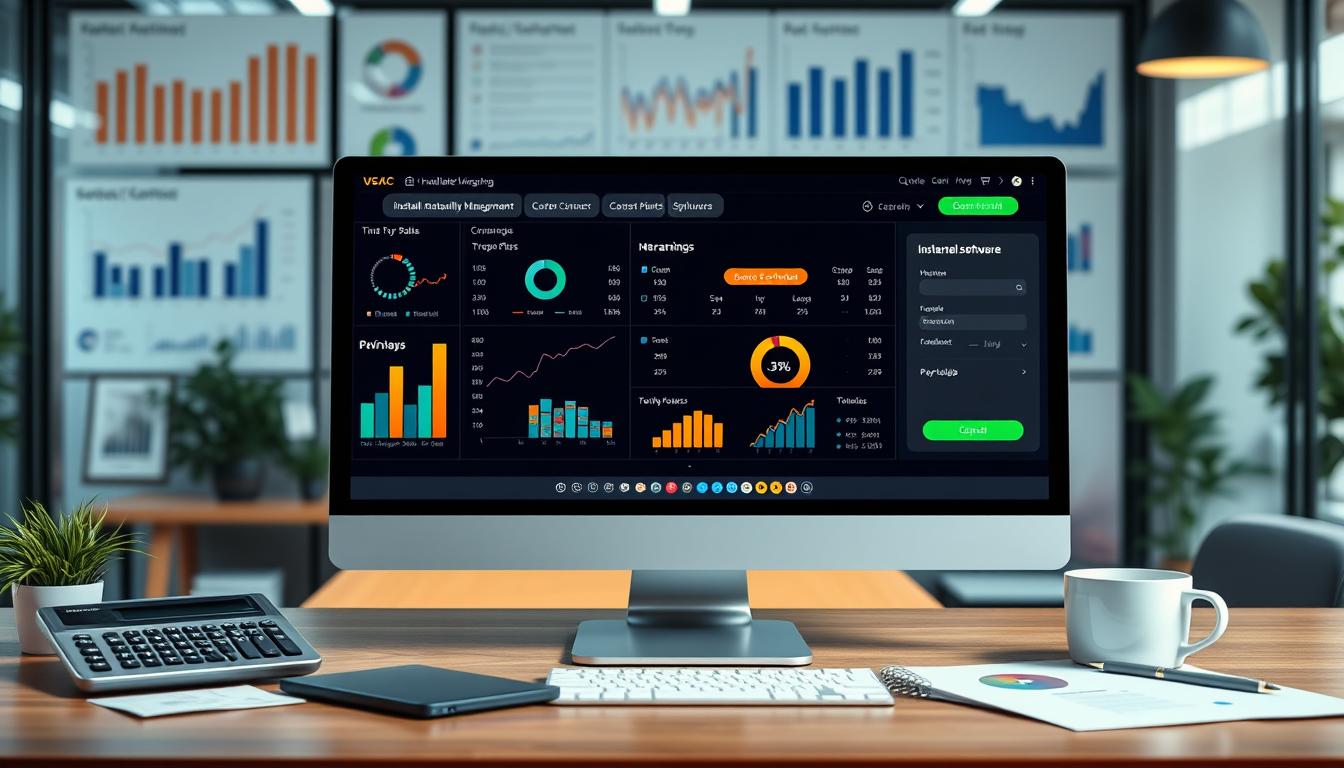Are you a small manufacturing business owner looking for ERP Systems software, to boost productivity, and maximize profits? Look no further than the world of ERP systems. ERP, or Enterprise Resource Planning, is the secret sauce that successful businesses use to manage everything from production and inventory to customer relationships and financials. In this article, we’ll take you on a journey through the best ERP production management software for small manufacturing businesses. Get ready to revolutionize the way you do business!
1. Understanding ERP Systems
ERP might sound like a complex term, but at its core, it’s like the control center of your business. Imagine it as the conductor of a symphony, harmonizing all the different instruments (departments) to play in sync. For small-scale manufacturing enterprises, an ERP system centralizes data, from production schedules to inventory levels, making decision-making more informed and efficient.
2. Key Benefits of Implementing ERP Systems
Implementing ERP systems in your small-scale manufacturing business brings forth a myriad of advantages. From enhancing operational efficiency to boosting collaboration among teams, ERP Systems offer:
- Streamlined Operations: ERPs integrate various processes, eliminating duplicated efforts and reducing manual errors.
- Real-time Insights: Keep your finger on the pulse of your business with up-to-the-minute data on inventory, sales, and more.
- Improved Communication: Break down silos between departments, allowing smoother communication and collaboration.
- Cost Savings: By optimizing processes, you can minimize waste, reduce production downtime, and make better purchasing decisions.
3. Top Features to Look for in an ERP
When hunting for the best ERP for your small manufacturing business, keep an eye out for these essential features:
- Inventory Management: Track raw materials and finished products in real-time.
- Production Planning: Efficiently schedule production runs and manage work orders.
- Supply Chain Integration: Connect with suppliers and distributors seamlessly.
- Quality Control: Ensure products meet high standards before they reach customers.
- Financial Management: Keep an eye on your finances with integrated accounting tools.
- Customization: Adapt the ERP to your specific needs without heavy coding.
4. Our Top Picks for the Best ERP Production Management Software
1. SAP Business One:
SAP Business One is a comprehensive ERP solution designed to empower small manufacturing businesses with advanced tools for efficient management. With its user-friendly interface and robust features, SAP Business One caters to the unique needs of small manufacturers, helping them streamline operations, optimize processes, and drive growth.
Key Features:
- Inventory Management: Maintain real-time visibility into your inventory levels and streamline order fulfillment.
- Production Planning: Efficiently schedule production runs and manage work orders to meet customer demands.
- Financial Management: Gain insights into your financial performance and make informed decisions.
- CRM Integration: Enhance customer relationships with integrated customer relationship management tools.
- Reporting and Analytics: Access comprehensive reports and analytics to monitor performance and identify trends.
- Contact Number: +922135824900 – 3, +1-800-872-1727
2. Odoo Manufacturing:
Odoo Manufacturing offers a versatile ERP solution designed to revolutionize your manufacturing operations. With its modular approach, Odoo allows you to tailor the system to your specific needs, ensuring that your small manufacturing business operates at its best.
Key Features:
- Modular Apps: Choose from a variety of modular apps to build a customized solution that suits your manufacturing processes.
- Inventory Control: Gain real-time insights into inventory levels, minimizing stockouts and overstocking.
- Work Order Management: Efficiently plan, schedule, and track work orders for optimized production.
- Quality Control: Ensure product quality with integrated quality control features.
- Reporting and Dashboards: Access visual analytics and reports to make informed decisions.
3. NetSuite:
NetSuite offers a cloud-based ERP solution that’s tailor-made for manufacturing businesses. With its comprehensive suite of features, NetSuite empowers small manufacturers to streamline their operations, enhance collaboration, and achieve unprecedented growth.
Key Features:
- Cloud Accessibility: Access your business data anytime, anywhere, with the power of cloud technology.
- 360-Degree Visibility: Gain a holistic view of your manufacturing operations for better decision-making.
- Supply Chain Management: Connect with suppliers, distributors, and partners seamlessly.
- Financial Management: Manage your finances with integrated accounting tools and reporting.
- Customization: Tailor NetSuite to your unique manufacturing processes.
- Contact Number: +1-877-638-7848
- Email Address: Infonetsuite_WW@oracle.com
4. Microsoft Dynamics 365:
Microsoft Dynamics 365 offers a powerful ERP solution designed to empower manufacturing businesses with innovation and efficiency. With seamless integration into familiar Microsoft tools, Dynamics 365 brings a new level of productivity to your small manufacturing operations.
Key Features:
- Familiar Tools: Leverage the power of Microsoft applications for enhanced collaboration and ease of use.
- Process Automation: Streamline manufacturing processes with automation and optimization.
- Supply Chain Visibility: Gain insights into your supply chain for better decision-making.
- Real-time Analytics: Access real-time data and analytics to drive informed business choices.
- Scalability: Grow your manufacturing business with a scalable and adaptable solution.
- Contact Number: +18552700615
5. Epicor ERP:
Epicor ERP is a tailored solution designed to revolutionize manufacturing operations. With a focus on automation, analytics, and industry-specific features, Epicor empowers small manufacturers to achieve optimal efficiency and growth.
Key Features:
- Industry Focus: Epicor caters to manufacturers, offering features specifically designed for your industry.
- Automation: Streamline processes and reduce manual tasks, boosting productivity.
- Advanced Analytics: Gain insights into your operations for data-driven decision-making.
- Scalability: Grow your business with a solution that adapts to your evolving needs.
- Customer Support: Access comprehensive support to ensure smooth operations.
5. Implementing ERP: A Step-by-Step Guide
- Assessment: Identify pain points and business needs to choose the right ERP.
- Planning: Develop a clear roadmap for the implementation process.
- Data Migration: Transfer your existing data to the new system.
- Training: Ensure your team is well-versed in using the ERP effectively.
- Testing: Thoroughly test the system before going live to avoid disruptions.
- Go-Live: Launch the ERP and monitor its performance closely.
6. Success Stories: How ERPs Transformed Businesses
Numerous small manufacturing businesses have witnessed remarkable transformations after implementing ERPs. From reducing lead times to improving on-time delivery, ERPs have been game-changers. A classic example is samsoor, which saw a 30% increase in production efficiency within six months of ERP adoption.
7. Avoiding Common Pitfalls
While ERPs offer immense benefits, it’s essential to avoid common mistakes:
- Lack of Proper Training: Ensure your team knows how to use the ERP effectively.
- Overlooking Scalability: Choose an ERP that can grow with your business.
- Ignoring Change Management: Prepare your team for the changes the ERP brings.
- Not Defining Clear Goals: Set measurable objectives for your ERP implementation.
8. Future Trends in ERP
The world of ERPs is continually evolving. Here are some trends to watch out for:
- Artificial Intelligence (AI) Integration: AI will enhance predictive analytics and automation.
- Cloud-Based ERPs: More businesses will move to the cloud for flexibility and accessibility.
- Internet of Things (IoT) Integration: ERPs will connect with smart devices for real-time data.
9. How to Choose the Perfect ERP for You
Selecting the right ERP requires careful consideration:
- Needs Assessment: Identify your specific business needs and pain points.
- Scalability: Ensure the ERP can accommodate your future growth.
- User-Friendly Interface: A user-friendly system is crucial for smooth adoption.
- Vendor Reputation: Research the vendor’s reputation and customer support.
In Conclusion
Embracing the right ERP can be a transformative journey for your small manufacturing business. By centralizing processes, boosting efficiency, and providing invaluable insights, ERPs lay the foundation for sustainable growth. So, don’t wait; explore the ERP options available and choose the one that aligns perfectly with your business’s needs and aspirations. Your path to manufacturing success starts here!
Frequently Asked Questions (FAQs):
- What is an ERP, and why do I need it?
An ERP is a business management software that integrates various processes, enhancing efficiency and decision-making. Small manufacturing businesses benefit from streamlined operations and real-time insights.
- How much does an ERP system cost?
ERP costs vary based on factors like the size of your business, features needed, and deployment method (cloud-based or on-premises). It’s best to request quotes from different vendors.
- Will ERP implementation disrupt my ongoing business operations?
While there might be some short-term adjustments, proper planning, and training can minimize disruptions. The long-term benefits far outweigh the temporary inconveniences.
- Is cloud-based ERP better than on-premises?
Cloud-based ERPs offer more flexibility, accessibility, and often lower upfront costs. However, the choice depends on your business’s specific requirements and preferences.
- Can I customize an ERP system to fit my unique business needs?
Yes, most modern ERPs offer customization options. However, striking the right balance between customization and out-of-the-box features is essential to avoid complications.



